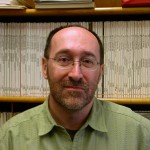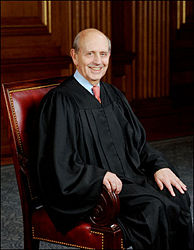Academic Freedom and Academic Anarchy
 Stanley Fish’s most recent column in the New York Times (The Two Languages of Academic Freedom, Feb. 8, 2009) is a good read. Fish tells the story of Denis Rancourt, a tenured full professor of physics at the University of Ottawa. Professor Rancourt is (or perhaps, was) a serious scientist, at least if his profile page at the university’s website is accurate. Under the heading “Main Discoveries and Contributions,” he lists the solution to the Invar Problem of metal physics, the derivation of the fundamental quantification relation of X-ray diffraction, the reactive diagenetic Fe-oxyhydroxide phase in lake and marine sediments, the description of the phenomenon of superferromagnetism, and advances in Mossbauer sprectroscopy methodology and in layer silicate crystal chemistry and geosensors. He lists scientific publications with titles as opaque to a lawyer as the aforementioned “discoveries and contributions.” He was tenured at the U of O in 1984 and far be it from this old lawyer to second guess his academic qualifications.
Stanley Fish’s most recent column in the New York Times (The Two Languages of Academic Freedom, Feb. 8, 2009) is a good read. Fish tells the story of Denis Rancourt, a tenured full professor of physics at the University of Ottawa. Professor Rancourt is (or perhaps, was) a serious scientist, at least if his profile page at the university’s website is accurate. Under the heading “Main Discoveries and Contributions,” he lists the solution to the Invar Problem of metal physics, the derivation of the fundamental quantification relation of X-ray diffraction, the reactive diagenetic Fe-oxyhydroxide phase in lake and marine sediments, the description of the phenomenon of superferromagnetism, and advances in Mossbauer sprectroscopy methodology and in layer silicate crystal chemistry and geosensors. He lists scientific publications with titles as opaque to a lawyer as the aforementioned “discoveries and contributions.” He was tenured at the U of O in 1984 and far be it from this old lawyer to second guess his academic qualifications.
What gets this obscure Canadian professor a column in the New York Times is not his solution of the Invar Problem of metal physics, but rather the fact that he is a self-professed and practicing academic anarchist. His profile describes himself as “an activist, anarchist, and critical pedagogue.” If his anarchistic activism were limited to speaking and writing, he would be just another campus radical. What got him headlines and an official Recommendation of Termination of Employment from his $120,000 professorship was his pedagogical activity. For example:


